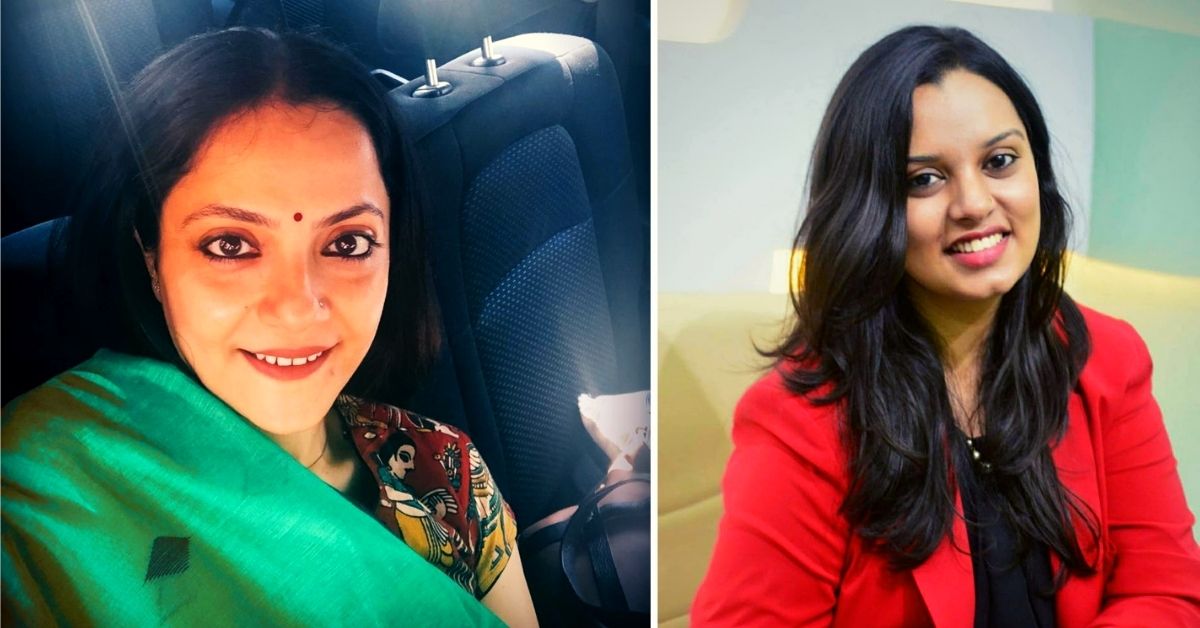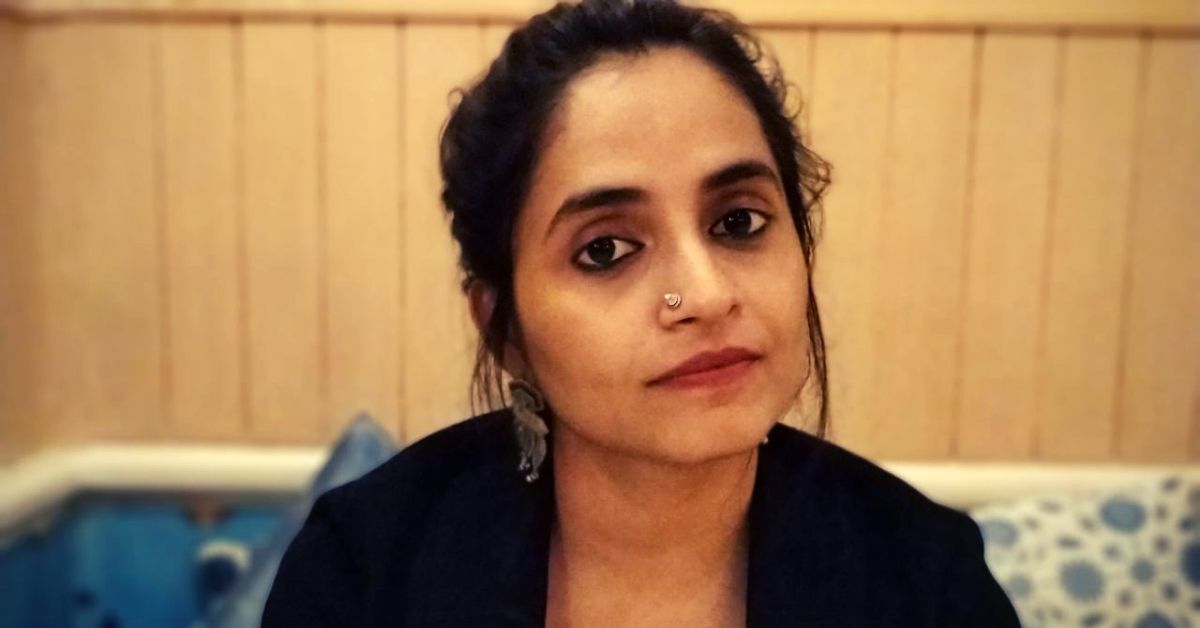3 Women Who Have Taken Period Leaves Share Why The Debate Needs To Shut Down
"Despite our gender, our bodies are not the same and so our experiences with periods are also not always the same"

As a society, there is a lot of emphasis placed on being honest and direct, especially with one’s needs and wants. But this is not the case for most women. Growing up, we are often encouraged to lie or to express themselves through metaphors for anything related to our bodies. From school to a workplace, everytime we need to take a day off because we’re on our period, we need to mask the request as a headache, stomach ache, or even concoct a vague illness.
Menstrual taboos play a huge role in this, leave alone the fact that in a school or college, with adolescents everywhere, it can be uncomfortable for many girls and women to talk about their periods. I remember facing numerous such instances where I had to whisper my condition in desperation to the strict female teacher, fearing that the boy sitting on the front bench might just hear.
Be it buying sanitary napkins from a pharmacy wrapped in a newspaper (or that black plastic bag, which is the only thing common between liquor and sanitary napkins), or the recurrent act of asking your friend to check the back for your clothes for any bloodstains, there is a constant anxiety of being subjected to shame associated with menstruation.
But in the last few years, informed and sensitive conversations on periods on public platforms have brought a wave of change that has not only dispelled various myths and taboos around it but more importantly has helped shed the shame, to some extent. After centuries of being shrouded in ignominy, it is finally being seen as is, not a disease or a disability but a phenomenon in a cis-woman’s life.
And that is why the debate that emerged out of a recent development — food delivery company, Zomato announcing introduction of period leaves — is so very important. The company claims it to be a move to encourage sensitivity in the workspace and quell any shame or stigma associated with it. While many welcome it, others critique it saying that its implementation would adversely affect employment opportunities of women, to an extent of sabotaging years of fight to their equality, especially in the professional space.
To address this discourse, we spoke to three women who have experienced working in companies that successfully implemented menstrual leaves, even before Zomato’s announcement. Addressing the major points of contention, they share their thoughts, concerns and hopes of making workspaces inclusive.
“Despite our gender, our bodies are not the same”

36-year-old Hemambika Kt works as a senior creative producer, at Culture Machine. A Mumbai-based digital media company, Culture Machine was one of the first in India, to offer voluntary menstrual leaves by adopting the First Day of Period (FOP) leave system back in 2017. Since then, they have filed several petitions in different Ministries to implement FOP leaves across India.
Having worked there for three years now, Hemambika says, “It was quite a coincidence, because on the very next day of joining the company I got my period and they are usually very painful. So I had to rush and ask for a leave, only to be told that they had just launched the FOP system and I was about to be the first to avail it. Since then, many of my colleagues and I have availed it whenever necessary and truth be told, there is no doubt that on days when the pain threshold is crossed, most commonly on the first days, this leave comes as a huge respite to us.”
While all her colleagues have been supportive of the FOP system within the company, the Zomato period leaves have created quite a stir across social media, with some women coming forward to question the need for it.
Devleena Sanyal Majumder (45), one of the people to introduce FOP and a former employee of Culture Machine says, “Firstly, these are optional leaves that can be either taken or not, based on the employee’s need and choice. And those who are critiquing its requirement, need to understand that despite our gender, our bodies are not the same and so our experiences with periods are also not always the same. Ranging from severe period pain, heavy bleeding, cramps to conditions like endometriosis, PCOS and so on, affect menstruating women that make those few days of the month exceptionally hard. These leaves not only acknowledge a woman’s needs but also ensure that employees feel safe and heard. That is an important requirement of a healthy work environment.”
Several studies speak about the severity of period pain, while this report even equates it with having a heart attack in some cases. Professor John Guillebaud of University College London, Institute for Women’s Health in his research says that one out of five women suffer from dysmenorrhea, also referred to as menstrual cramps.

A former chief of staff and now founder of an HR consulting company called Lean People Consulting, Devleena adds that instead of loss of productivity, leaves like this only increase employee efficiency.
27-year-old Shruti Chaturvedi, founder of another media organisation, Chaaipani, agrees. “Making someone work through the pain is not only horrible but also sets a wrong precedent for the entire work culture. Moreover, if you want your employees to give their best, they first need to be at their best healthwise,” she says.
Although, most companies in India do not have a specific leave assigned for periods, a majority of women employees working there often consume their regular paid leaves or sick leaves to cater to their needs during menstruation. In this regard, Hemambika points out that this is not an ideal situation and is done out of desperation and should not be acceptable.
“Why should we consume our sick leaves because we are on our period? This is not a sickness or illness. Sick leaves are to be taken when someone falls sick suddenly, not during a natural process that takes place every single month. Imagine if one ends up consuming all their sick leaves for periods and then is left with none when they are actually sick,” she says.
“If a woman chooses to work on the day of her periods, there is no shame in that, just like there should not be any shame if she chooses to take a day off on the same day,” Hemambika adds.
Equality VS Equity
Another criticism towards menstrual leaves is the alleged threat to gender equality. The common concern is that menstrual leaves will breed a sense of disparity and adversely affect employment opportunities of women.
To that Hemambika says, “What is equality really? It is not about blurring the distinction between various genders, communities or ideologies. Instead, it is about acceptance and accomodation. It is about a deep-seated respect for both the similarities and the dissimilarities that exist between people with polarising anatomies or belief systems or ideologies. It is about inclusivity and providing the space and opportunities to flourish and celebrate the dissimilarities without any discrimination.”

An employer herself, Shruti emphasises that gender equality in the workplace is achieved through equal and impartial opportunities, on an equal footing.
“In our organisation, we follow a special mail format to inform other team members about our absence due to periods. If need be, anyone on periods can take an off without having to justify. When I put up a post about this practice on social media, many male professionals came forward questioning it as an impartial move. My response to that was simple, for equality both the parties need to be on the same page, so if men would’ve menstruated, they would’ve also been given these leaves. Unlike what people are saying, this is not an extra thing, but a minimum that we can do to help women be their best self and increase productivity.
“As an employer, I have a simple mantra, if you trust your employees, they will trust you back. But if they cheat or lie about such things, then the problem is not them, but you. The rot then is in the system you are following,” she adds.
Shruti believes that much like maternity leaves, this too should become a norm and the concern about reduced hiring of women due to this is rather a dark reflection of the work environment and ethics. “Don’t question the positive move with concerns of discrimination against women, because the problem then is with the companies using this as a excuse to deny gender diversity in their company.”
In agreement, Devleena points out that away from the limelight, many prominent companies including Tata Steel also have provisions for menstrual leaves. More companies are realising the positive impact of such a move and in the days to come she hopes to see it normalised just like maternity leaves.
It is true that women have fought hard for representation in all the sectors and for their voices to be heard. But does acknowledging the reality that menstruation can lead to pain make us weak? In the fight towards a traditional sense of equality, is it correct to be oblivious to our reality?
As an answer to these questions, Hemambika says, “There have been many days when I had to stay on my feet continuously for 18-19 hours straight during a shoot, and have efficiently completed many tasking jobs. Women across the world have done the most difficult of jobs when required and have proven their mettle and so this is a breather we deserve if we want to take it. But at the core, we all need to realise that we are much more than just one or two days of period leaves. We bring much more to the table and deserve everything and more.”
(Edited By Gayatri Mishra)
If you found our stories insightful, informative, or even just enjoyable, we invite you to consider making a voluntary payment to support the work we do at The Better India. Your contribution helps us continue producing quality content that educates, inspires, and drives positive change.
Choose one of the payment options below for your contribution-
By paying for the stories you value, you directly contribute to sustaining our efforts focused on making a difference in the world. Together, let’s ensure that impactful stories continue to be told and shared, enriching lives and communities alike.
Thank you for your support. Here are some frequently asked questions you might find helpful to know why you are contributing?


This story made me
-
97
-
121
-
89
-
167











